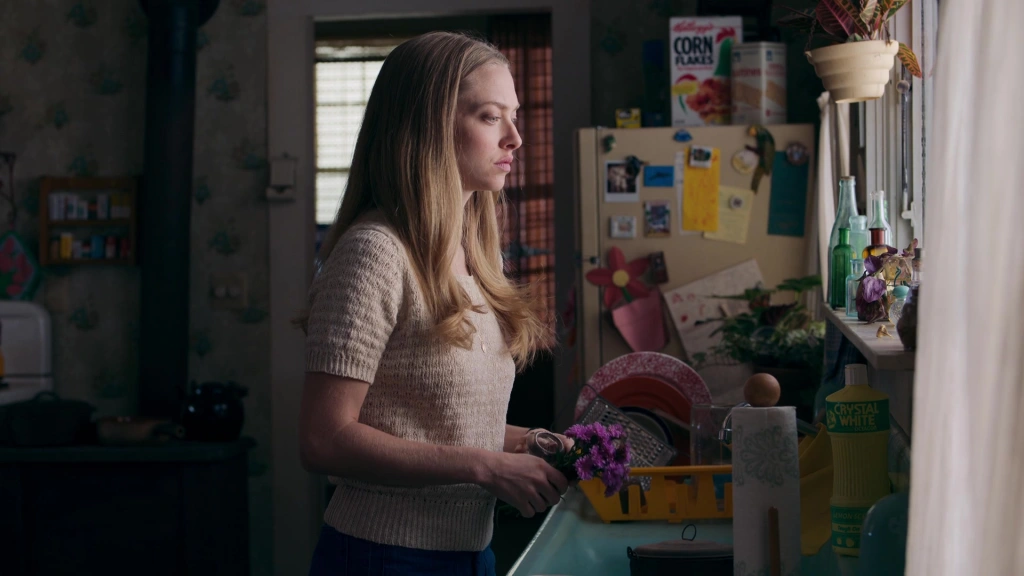Horror is a strange genre in podcasting right now. It’s pervasive in the audio drama medium, but it’s seldom I find an audio drama that feels more Shirley Jackson, less Stephen King. While horror cinema is seeing a bit of a renaissance with creeping, slow-paced, psychological horror in the likes of The Witch and Get Out, I’ve wanted something similar in audio drama: a horror podcast that isn’t scary to be scary, but scary as a way of telling some truth about the human condition.
Palimpsest is a ghost story, but it isn’t set out to make you afraid of ghosts. It’s set out to make you afraid of things much deeper and much closer to home:
Palimpsest is an audio drama about memory, identity, and ghosts. The first season, “Anneliese,” tells the story of Anneliese Glaser, who is still mourning the death, years earlier, of her sister Claire. The podcast is presented as Anneliese’s audio notes to her former therapist as she works through her feelings about her sister, but soon takes an eerie turn to document hauntings in her new apartment, as well as Anneliese’s potentially flawed memories of Claire. As Anneliese experiences more hauntings, she is forced to confront disturbing truths about her own past. The season ran biweekly from October 31st, 2017 until March 6th, 2018. Season two, featuring a new story and character, will launch in autumn 2018.
In critical analysis of the horror genre (or, as it’s often called in scholarly pieces, the Gothic genre), there are two schools of accomplishing the sense of fear and dread you’re trying to achieve: there’s horror, which is about the reaction to a quick scary stimuli like a loud noise, seeing gore, or other version of jump scares; then, there’s terror, the slow, creeping dread that builds at the back of your mind because it draws on a fear you know too well. Audio drama has had plenty of horror podcasts, and the genre has defined itself and built out a niche that’s well-known and much-beloved by listeners. My frustration with the genre, though, is often that there isn’t enough terror, isn’t enough humanity reflected in the scares.
Palimpsest isn’t a podcast that will necessarily make you feel afraid if you’re listening to it alone at night. It doesn’t try to make your heart race, though there are moments of unnerving suspense throughout. Palimpsest isn’t a scary story that happens to have a plot: it’s a rich, deep story that uses its genre to tell a truth. It’s a ghost story about being haunted in many ways–a trope that feels tired in most works, but feels correct here. Oftentimes, horror as a metaphor can feel forced or navel-gazing. Here, there’s no sign of that back-patting; the ghost story at its core, when listened with no further analysis, is still deeply rewarding as a narrative.
Following in the tradition of American Gothic greats, what roots Palimpsest is its characters. Like Six Cold Feet, another much-beloved recent audio drama, Palimpsest is the story of a flawed narrator reflecting on their sibling through the specific skewed lens only a nostalgic sibling can have. When listening, I was constantly reminded of the vicvid protagonists of Shirley Jackson’s The Haunting of Hill House or T. E. D. Klein’s The Events at Poroth Farm. Anneliese is deeply flawed, but deeply relatable. Unlike most horror protagonists, Anneliese is decidedly soft and gentle. She isn’t fragile, but she certainly feels more akin to magic realism The Far Meridian‘s introverted Peri than to the sci-fi horror Limetown‘s hardened Lia Haddock. Hayley Heninger’s performance as Anneliese brings a tangible authenticity to what is, essentially, an extended monologue. The single-narrator setup for most of the audio drama often feels too scripted, but there’s an elegance to Heninger’s performance that makes its scriptedness feel irrelevant.
The podcast knows what it is, and it doesn’t attempt to sound absolutely realistic like many other podcasts do. I actually found this really refreshing. I don’t always need to believe I’m listening to found audio or, in this podcast’s case, recordings for a therapist. The framing device exists, but it’s tertiary to the podcast as a whole. Palimpsest is fine with being an audio drama that is clearly fictional. It explains why it’s audio, but it understands that it can immerse the listener and make an impact in more ways than just sounding real. It’s an elegant tactic that I wish more audio dramas would embrace; it’s allowed some beautiful, poetic writing in Palimpsest that wouldn’t feel at home in another podcast trying to sound “real.” By eschewing strict realism in audio, Palimpsest allows itself to explore emotional truth through its writing. The overall effect is a podcast that feels sophisticated, lasting, and profound.
The one issue I took with Palimpsest was its use of sound effects. In most episodes, the design work is minimal and at times realistic (the podcast’s full-cast episode that takes place outside of Anneliese’s apartment comes to mind). Sometimes, though, the sound effects were distinctly more canned than the rest of the audio. The recurring sound of a child’s laughter sounds a bit too familiar; a dog’s bark comes through a bit too loud on the mix to sound like it exists in the same space as Anneliese. When put up against Heninger’s tenderness and the gorgeous score by Ian Ridenhour, these sound effects clash with the otherwise gentle sound aesthetic.
Palimpsest‘s first season has concluded, with a second season coming this autumn. While season two will have a completely different story, I suspect listeners can anticipate more of what the horror genre in audio drama has lacked until now. I suspect listeners can anticipate some more beautiful storytelling that will linger with them for much longer than expected, too.
You can find Palimpsest on their website or any podcatcher. Their logo art, used here as a header, was made by Megan Lee.








Leave a comment